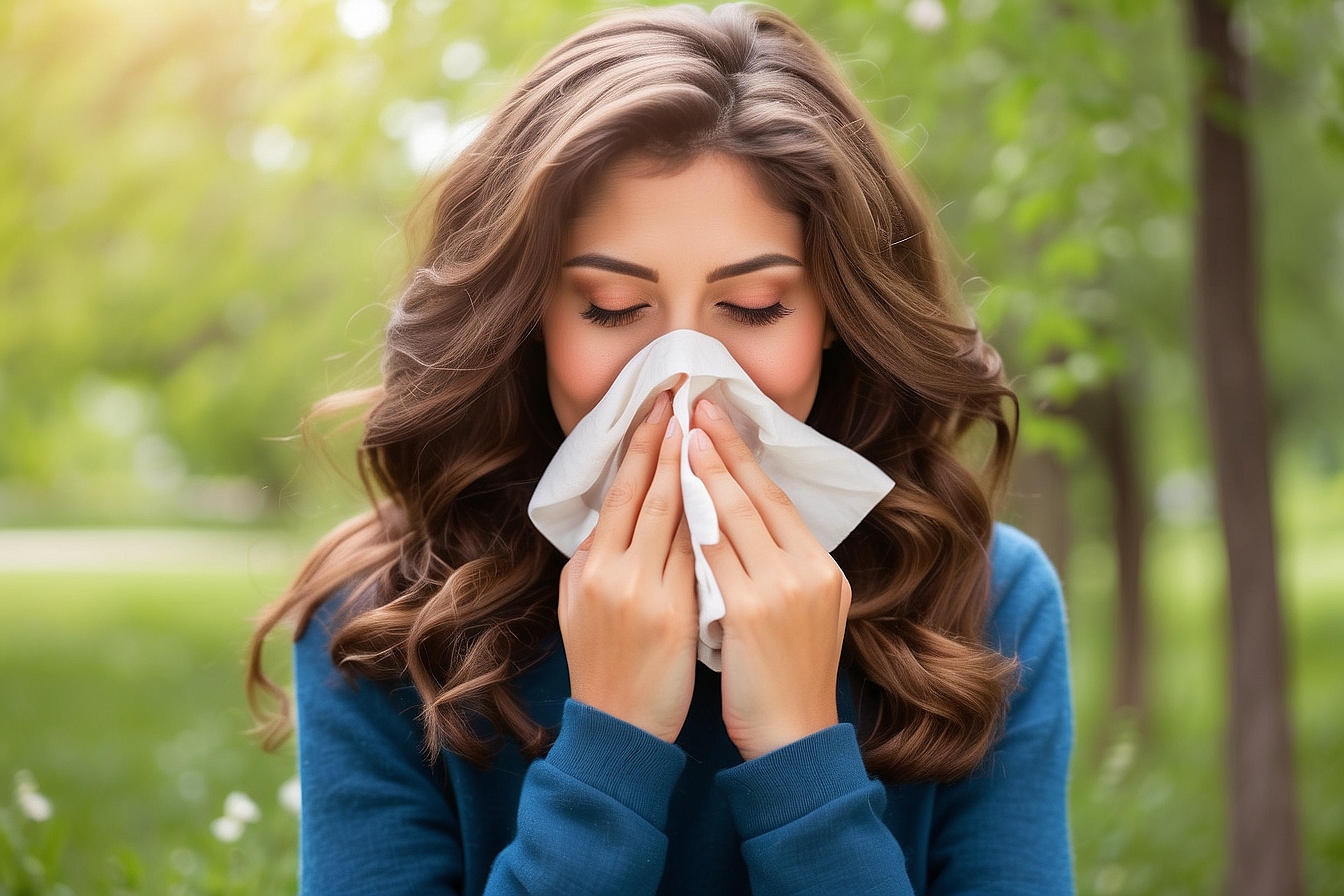In today’s whirlwind of life, it’s hardly a surprise that feeling buried under the weight of stress has become somewhat of the norm. We completely understand – indeed, with almost three-quarters of adults in the UK having been so besieged by stress in the last year that they’ve felt swamped or at their wit’s end, you’re certainly not alone.
Our thorough exploration into holistic remedies offers some truly effective strategies designed to help you manage your stress levels, focusing on both your mental and physical wellbeing.
Settle in as we guide you along a tranquil path towards equilibrium and inner peace.
Key Takeaways
- Engage in regular physical activity like yoga or walking to release endorphins, which are the body’s natural stress-reducers. This not only lifts your mood but also improves sleep and energy levels.
- Prioritise a balanced diet with plenty of fruits, vegetables, whole grains, lean proteins, and healthy fats. Nutrient-rich foods support our bodies against stress and improve mental health while mindful eating enhances our mind-body connection.
- Practise mindfulness and relaxation techniques daily such as meditation, deep breathing exercises, or spending time in nature. These activities can quiet the mind, reduce anxiety levels, promote emotional balance and ground us.
- Establish good sleep hygiene by keeping a cool, dark bedroom environment and avoiding stimulants before bed to help get restorative sleep each night. Consistent quality sleep is vital for managing stress effectively.
- Identify personal stress triggers to tackle them directly through targeted strategies like setting boundaries at work or seeking professional guidance from therapists if feelings of overwhelm persist.
Understanding Stress and its Impact on Our Health
Stress comes in various forms and can affect our physical, mental, and emotional health. It’s important to recognise the different types of stress and how they can impact our overall well-being.
Types of stress
We often face two main types of stress: acute and chronic. Acute stress hits us like a sudden storm, caused by immediate perceived threats or pressures. It can be thrilling in small doses but exhausting if it happens too often.
For example, you might feel this kind of stress during an argument, when faced with a deadline, or while narrowly avoiding an accident.
Chronic stress simmers below the surface for longer periods, resulting from ongoing situations such as financial troubles or unhappy relationships. This type lingers and can disrupt our balance and wellness if we don’t manage it effectively.
Recognising these different types helps us tailor our holistic strategies for better mental health and emotional wellbeing, ensuring we approach stress relief in ways that nurture both mind-body connection and environmental harmony.
Effects on physical, mental, and emotional health
Understanding the various types of stress can help us recognise the impact it has on our physical, mental, and emotional health. Chronic stress can lead to headaches, muscle tension, digestive issues, and weakened immune function.
It can also contribute to anxiety, depression, irritability and affect our ability to concentrate and make decisions. Emotionally, chronic stress may result in feelings of overwhelm or hopelessness.
Furthermore, prolonged exposure to environmental stressors might lead to negative impacts on our physical health such as cardiovascular diseases or respiratory problems. Mentally and emotionally, this ongoing pressure could cause mood swings or difficulty managing emotions.
The Importance of Taking a Holistic Approach to Managing Stress
It’s important to take a holistic approach to managing stress, as it addresses both the physical and mental/emotional aspects of our well-being. By achieving balance in all areas of our lives, we can effectively reduce and manage stress for overall better health.
Addressing physical and mental/emotional aspects
To achieve a holistic approach to stress management, it’s essential to address both the physical and mental/emotional aspects of our well-being. Engaging in regular physical activity, such as exercise or yoga, can help relieve physical tension in the body while promoting mental clarity and emotional balance.
Additionally, practicing mindfulness techniques like meditation and deep breathing exercises can calm the mind and reduce emotional stress. Acknowledging and addressing both aspects is crucial for achieving overall wellness and maintaining a balanced lifestyle.
Implementing self-care practices like adequate sleep hygiene, healthy nutrition, and seeking professional help when needed are also vital components of addressing both physical and mental/emotional aspects of stress management.
Achieving balance in life
To achieve balance in life, it’s essential to prioritise self-care and carve out time for relaxation. Making conscious efforts to connect with nature and the environment can also help restore harmony within ourselves.
Engaging in outdoor activities like gardening, hiking, or simply spending time in green spaces can contribute to our overall wellbeing while supporting environmental conservation.
Additionally, establishing a healthy work-life balance is crucial. Setting boundaries around work hours and making time for hobbies, family, and friends can significantly impact our emotional wellness and stress levels.
It’s important to include both personal self-care practices and activities that support the environment as part of our holistic approach to managing stress.
Holistic Strategies for Managing Stress
To effectively manage stress, it’s important to focus on holistic strategies such as maintaining a balanced diet and nutrition, practising mindfulness and relaxation techniques, incorporating regular exercise into your daily routine, and prioritising quality sleep.
These practices can help address the physical and mental/emotional aspects of stress while promoting overall wellbeing.
Diet and nutrition
When managing stress holistically, diet and nutrition play a pivotal role. Consuming a balanced diet rich in fruits, vegetables, whole grains, lean proteins, and healthy fats helps support overall well-being.
It’s important to prioritise nutrient-dense foods that provide essential vitamins and minerals to nourish the body and enhance resilience against stress. Incorporating mindful eating practices can also foster a deeper mind-body connection and promote sustainable living through conscious food choices.
Incorporating whole foods into our diet supports not just physical health but also mental and emotional well-being. Choosing organic produce when possible contributes to environmental conservation efforts while providing optimal nourishment for our bodies.
Mindfulness and relaxation techniques
Mindfulness and relaxation techniques are effective in managing stress and promoting wellbeing. These practices can be integrated into daily routines to bring balance and calmness.
- Engage in regular meditation to quiet the mind, enhance self-awareness, and reduce stress levels.
- Practise deep breathing exercises to promote relaxation, lower blood pressure, and improve oxygen flow.
- Incorporate yoga sessions to increase flexibility, strengthen muscles, and achieve mental clarity.
- Spend time in nature for grounding and rejuvenation through activities such as forest bathing or gardening.
Exercise
Regular physical activity is a key component of a holistic approach to stress management. Engaging in regular exercise, such as walking, cycling, or yoga, has been shown to reduce stress levels and improve overall wellbeing.
Exercise helps to release endorphins – the body’s natural mood lifters – promoting a sense of calm and reducing feelings of anxiety. Moreover, it also contributes to better sleep quality and increased energy levels throughout the day.
Incorporating physical activity into our daily routine not only benefits our individual health but also positively impacts the environment by promoting active transportation methods like walking or cycling over driving.
Sleep hygiene
Establishing healthy sleep hygiene is essential for our overall wellbeing. Creating a conducive sleep environment by keeping the bedroom cool, dark, and quiet helps promote restful sleep.
Maintaining a consistent sleep schedule supports the body’s natural circadian rhythm, aiding in better quality rest. Avoiding stimulants like caffeine and electronic devices close to bedtime also contributes to improved sleep quality.
Additionally, engaging in relaxing activities before bed, such as reading or taking a warm bath, can help signal the body that it’s time to wind down for the night.
Developing good sleep habits is vital for our holistic health approach and ensuring that we are fully recharged to face each day with energy and vitality. Prioritising adequate and restorative sleep supports our physical and mental wellbeing, contributing positively to stress management efforts.
Next Steps for Creating a Holistic Stress Management Plan
Identifying individual stressors, implementing self-care practices, and seeking professional help if needed are essential next steps for creating a holistic stress management plan.
Read on to learn more about how you can achieve balance in your life and effectively manage stress.
Identifying individual stressors
To manage our stress effectively, it’s crucial to pinpoint the specific triggers that lead to feelings of overwhelm or anxiety. By recognising these individual stressors, such as work deadlines, financial pressures or relationship issues, we can take proactive steps to address and manage them.
Identifying personal stressors empowers us to develop targeted coping strategies and make necessary lifestyle adjustments for improved wellbeing.
Through this process of self-reflection and recognition of our unique sources of stress, we gain insight into the aspects of our lives that require attention and positive change. This self-awareness serves as a solid foundation for creating a personalised holistic stress management plan that aligns with our values and overall wellness goals.
Implementing self-care practices
To incorporate self-care practices into our daily routines, we can start by setting aside time for activities that promote stress reduction and overall wellbeing. Engaging in mindfulness exercises, such as meditation or deep breathing, can help us to relax and alleviate mental tension.
Additionally, prioritising regular physical activity and ensuring adequate sleep are vital components of self-help techniques. Taking the time to identify individual stressors is crucial in tailoring a personalised selfcare plan that meets our unique needs.
By consciously integrating these practices into our lives, we can achieve a balanced lifestyle that supports both our mental and physical health.
Taking care of ourselves also involves paying attention to what we eat; maintaining a healthy diet rich in nutrients will nourish both the mind and body. This includes consuming foods known for their stress-reducing properties such as omega-3 fatty acids found in fish or antioxidants abundant in fruits and vegetables.
Seeking professional help if needed
If experiencing overwhelming stress, it’s essential to reach out to trained professionals such as therapists, counsellors, or psychologists who can provide valuable support and guidance.
These experts can offer tailored strategies for coping with stress and improving mental well-being, promoting a balanced and healthy lifestyle. Seeking professional help is an empowering step towards managing stress effectively and nurturing overall health.
It’s important to acknowledge that asking for professional assistance is not a sign of weakness but rather a proactive approach towards prioritising mental and emotional wellness. Every individual deserves access to the necessary support in navigating through life’s challenges, fostering resilience and wellbeing.
Conclusion
In conclusion, holistic approaches to stress management involve addressing both the physical and mental aspects of our well-being. By incorporating healthy living practices and self-care techniques, we can achieve a better lifestyle balance.
Implementing mind-body connection strategies and seeking professional help if needed are important steps towards managing stress effectively. It’s essential to prioritise our well-being by integrating these holistic approaches into our daily lives for overall wellness.
FAQs
1. What do holistic approaches to stress management mean?
Holistic approaches to stress management involve taking care of your entire self, including the mind-body connection, through healthy living and lifestyle balance.
2. How can I use self-care practices for better stress management?
You can manage stress by practising self-care routines that boost wellbeing, like regular exercise, getting enough sleep, eating a balanced diet, and scheduling time for relaxation.
3. Can understanding the mind-body connection really help reduce my stress?
Yes! By recognising how your thoughts affect your physical health and vice versa, you can use techniques like meditation or yoga to enhance your overall wellness.
4. Are there any easy-to-follow self-help methods to handle daily stresses?
Certainly! Simple self-help techniques include deep breathing exercises, setting realistic goals, prioritising tasks and taking short breaks throughout the day to prevent burnout.





